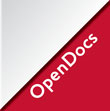The Politics of Reducing Malnutrition: Building Commitment and Accelerating Progress

Date
2013-06-06Author
Gillespie, Stuart
Haddad, Lawrence
Mannar, Venkatesh
Menon, Purnima
Nisbett, Nicholas
Metadata
Show full item recordImpact
Abstract
In the past 5 years, political discourse about the challenge of undernutrition has increased substantially at national and international levels and has led to stated commitments from many national governments, international organisations, and donors. The Scaling Up Nutrition movement has both driven, and been driven by, this developing momentum. Harmonisation has increased among stakeholders, with regard to their understanding of the main causes of malnutrition and to the various options for addressing it. The main challenges are to enhance and expand the quality and coverage of nutrition-specific interventions, and to maximise the nutrition sensitivity of more distal interventions, such as agriculture, social protection, and water and sanitation. But a crucial third level of action exists, which relates to the environments and processes that underpin and shape political and policy processes. We focus on this neglected level. We address several fundamental questions: how can enabling environments and processes be cultivated, sustained, and ultimately translated into results on the ground? How has high-level political momentum been generated? What needs to happen to turn this momentum into results? How can we ensure that high-quality, well-resourced interventions for nutrition are available to those who need them, and that agriculture, social protection, and water and sanitation systems and programmes are proactively reoriented to support nutrition goals? We use a six-cell framework to discuss the ways in which three domains (knowledge and evidence, politics and governance, and capacity and resources) are pivotal to create and sustain political momentum, and to translate momentum into results in high-burden countries.
